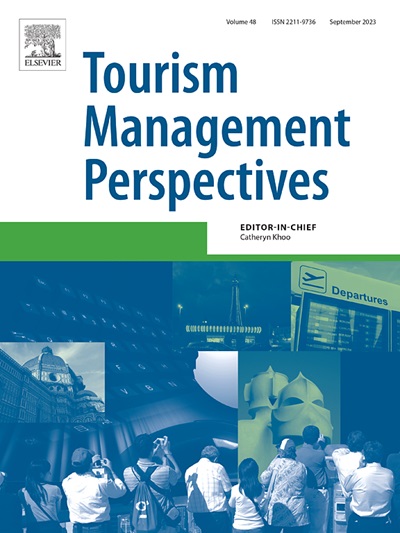给面子还是不丢脸?AI服务机器人礼貌策略对酒店价值共创的影响
IF 6.9
2区 管理学
Q1 HOSPITALITY, LEISURE, SPORT & TOURISM
引用次数: 0
摘要
礼貌已被广泛纳入人工智能驱动的礼仪系统。本研究利用面子概念、关系模型和礼码,探讨礼貌策略对价值共同创造的影响。三个被试间实验考察了礼貌策略与VCC的关系以及顾客承诺的中介作用。研究了机器人类型和拟人化角色的调节作用。我们的研究发现,使用积极礼貌的人工智能服务机器人比使用消极礼貌的人工智能服务机器人产生了更大的客户VCC,而CC在其中起到了中介作用。此外,我们发现,当使用人形机器人(与非人形机器人相比)以及将机器人拟人化为朋友(与仆人相比)时,积极(与消极)礼貌策略会增加VCC。我们的研究结果扩展了机器人交互策略与客户VCC之间的关系,具有重要的理论贡献。讨论了酒店管理人员优化人工智能服务机器人沟通策略的简化指南。本文章由计算机程序翻译,如有差异,请以英文原文为准。
Giving face or not losing face? The effect of AI service robot politeness strategy on value co-creation in hospitality
Politeness has been widely incorporated into AI-driven etiquette systems. Drawing on face concept, guanxi model, and li code, this study explores the effect of politeness strategy on value co-creation (VCC). Three between-subject experiments investigated the relationship between politeness strategies and VCC and the mediating role of customer commitment (CC). The moderating effect of the robot type and anthropomorphism role is examined. Our paper finds that AI service robots using positive politeness led to greater customer VCC than those using negative politeness, with CC mediating this effect. Furthermore, we find the positive (vs. negative) politeness strategy increases VCC when humanoid (vs. non-humanoid) robots are employed and when they are anthropomorphized as friends (vs. servants). Our findings extend the relationship between the robot's interaction strategies and customer VCC with important theoretical contributions. A simplified guide for hospitality managers to optimize the communication strategies of AI service robots is discussed.
求助全文
通过发布文献求助,成功后即可免费获取论文全文。
去求助
来源期刊

Tourism Management Perspectives
Multiple-
CiteScore
15.60
自引率
3.40%
发文量
99
审稿时长
59 days
期刊介绍:
Tourism Management Perspectives is an interdisciplinary journal that focuses on the planning and management of travel and tourism. It covers topics such as tourist experiences, their consequences for communities, economies, and environments, the creation of image, the shaping of tourist experiences and perceptions, and the management of tourist organizations and destinations. The journal's editorial board consists of experienced international professionals and it shares the board with Tourism Management. The journal covers socio-cultural, technological, planning, and policy aspects of international, national, and regional tourism, as well as specific management studies. It encourages papers that introduce new research methods and critique existing ones in the context of tourism research. The journal publishes empirical research articles and high-quality review articles on important topics and emerging themes that enhance the theoretical and conceptual understanding of key areas within travel and tourism management.
 求助内容:
求助内容: 应助结果提醒方式:
应助结果提醒方式:


